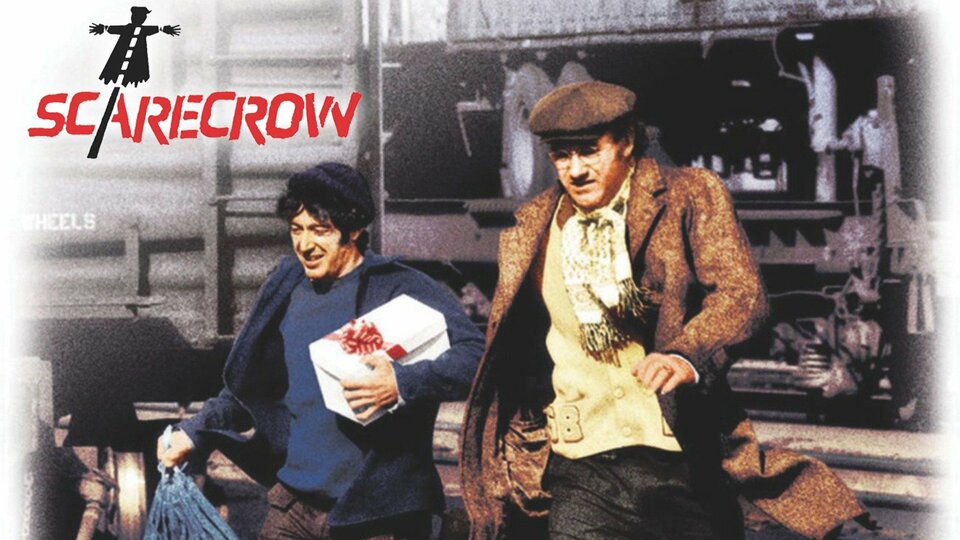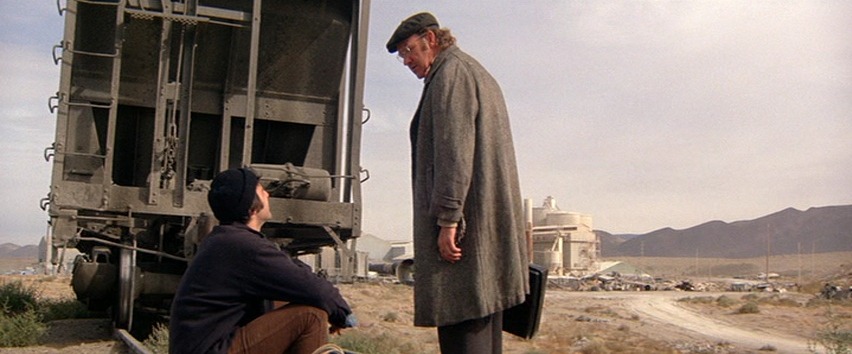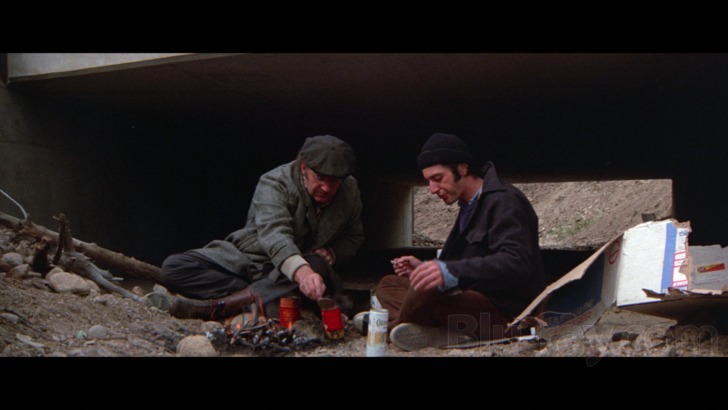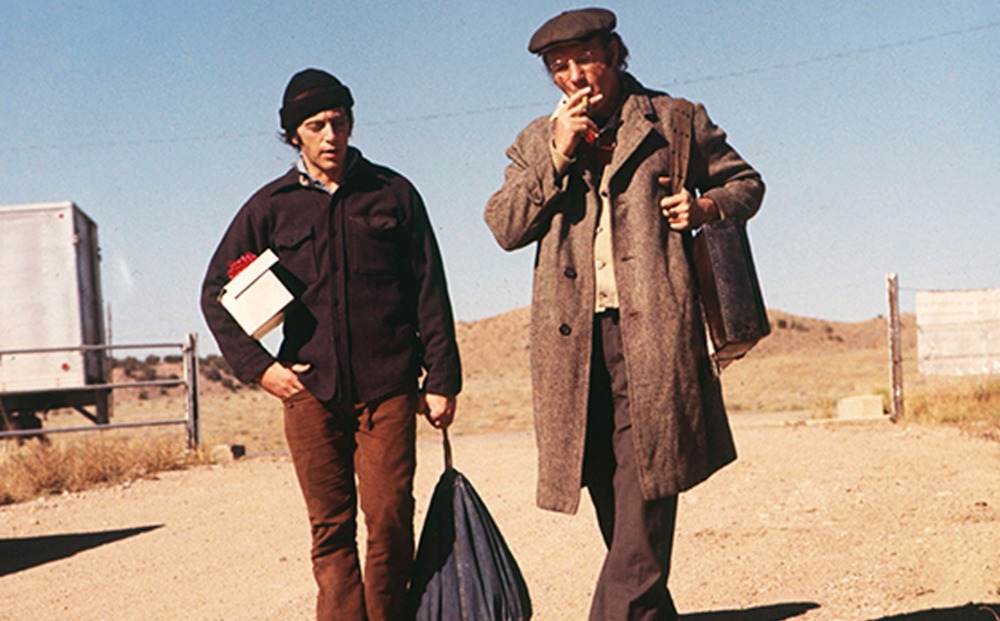Scarecrow (1973)

Scarecrow (1973) is a poignant American street comedy directed by Jerry Schatzberg, starring Gene Hackman and Al Pacino. Set in the 1970s, the film follows the journey of two men, both from California, who arrive in Pittsburgh with dreams of starting a new life and building a business together. The film is a blend of comedy and drama, exploring themes of friendship, ambition, and the harsh realities of life. Scarecrow is often praised for its authentic portrayal of human relationships and the performances of its lead actors.
The story centers on two men, Max, played by Gene Hackman, and Lion, played by Al Pacino, who meet on the streets of Pittsburgh as they embark on separate journeys of self-discovery. Max, a brash and somewhat cynical man, is looking to start a new business venture, while Lion, a more naive and hopeful individual, is seeking a fresh start after a troubled past. Despite their differences, the two form an unlikely bond and decide to team up to create a business. As they navigate their way through the city’s rough streets, they learn more about each other’s vulnerabilities and develop a deep friendship that challenges their ideas of success and what it means to truly live.
The film’s success is largely due to the incredible performances of its lead actors. Gene Hackman’s portrayal of Max is both gritty and vulnerable, capturing the complexity of a man who is hardened by life but still seeks something better. Al Pacino’s portrayal of Lion is equally compelling, bringing a sense of warmth and optimism to his character. Their chemistry on screen is electric, with each actor complementing the other in their portrayal of two men who are fundamentally different but still united by a shared sense of struggle. The development of their relationship over the course of the film is deeply moving, and their bond becomes the emotional heart of the story.

At its core, Scarecrow is a story about friendship and the challenges of navigating life’s uncertainties. The film explores how two individuals, coming from different backgrounds, can form a meaningful connection in the face of hardship. The relationship between Max and Lion is tested by their individual pasts and the difficulties they encounter as they try to build their future together. The film suggests that true success is not measured by business achievements or material gain, but by the bonds we create with others and the support we offer during difficult times.

Scarecrow is often categorized as a street comedy, but it’s far more than just a lighthearted tale. The film’s portrayal of life on the streets of Pittsburgh is grounded in realism, capturing the gritty, often unforgiving nature of urban life. The humor in the film arises from the characters’ interactions with one another and their attempts to navigate a world that seems stacked against them. The comedic moments are balanced with moments of deep emotional resonance, making the film both entertaining and thought-provoking. The contrast between the humor and the serious undertones of the story gives the film a unique flavor, blending lightness with poignancy.

Jerry Schatzberg’s direction in Scarecrow is subtle and sensitive, focusing on character development and the emotional journey of the two leads. Schatzberg allows the film to unfold at a natural pace, with moments of introspection and humor interspersed throughout the story. The cinematography captures the gritty atmosphere of Pittsburgh, with its industrial backdrop and streets that feel alive with the characters’ struggles. The film’s pacing is deliberate, giving the audience time to connect with the characters and their experiences. Schatzberg’s ability to balance the comedic and dramatic aspects of the film adds depth and complexity to what might otherwise have been a straightforward story.
In conclusion, Scarecrow is a heartfelt and captivating film that delves into the human experience through the lens of friendship, struggle, and ambition. Gene Hackman and Al Pacino deliver unforgettable performances, bringing their characters to life in a way that makes the audience care deeply about their journey. The film’s mix of realism, humor, and emotional depth, combined with Jerry Schatzberg’s expert direction, makes it a standout piece in 1970s cinema. For those who appreciate character-driven stories that explore the complexities of life and human relationships, Scarecrow is a must-see film that continues to resonate with audiences today.











